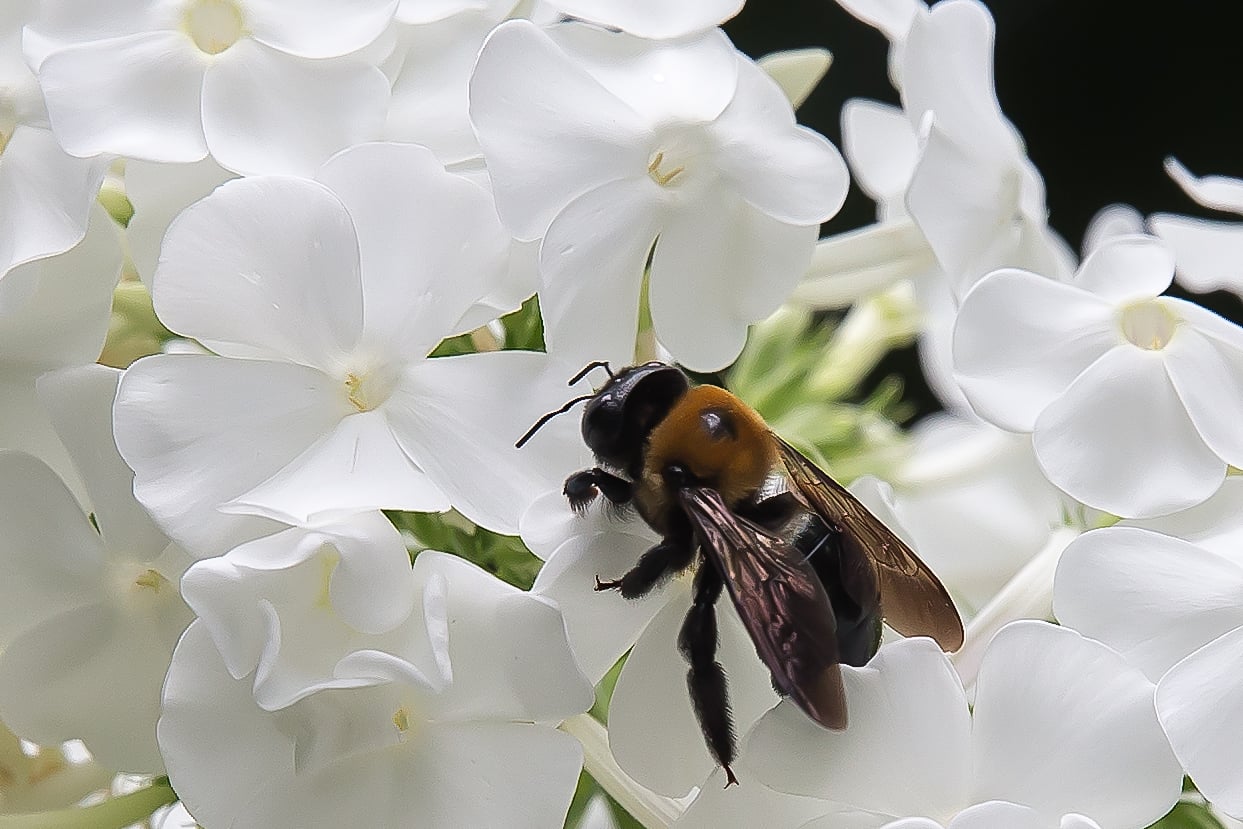While meandering about in our garden the other day I was surprised to see how many bees were buzzing about. Then I remembered that the Phlox had never been so tall or so vibrant. So splendid. The bees seemed to favor the white flowers over the pink?
Bee in the Phlox
Then I recalled that Sandy had blown down almost all of our 150 feet of gorgeously greyed out cedar fence last October. And having replaced the fence with chain link (who can afford cedar again), I could see how much more sunlight was hitting the flower beds. Amazing how many more flowers, how many more bees, how many other more pollinating creatures filled our yard. Come to think of it, how many more times both us got stung this year!
Talk about how interconnected things are. Did anyone perchance have the pleasure of reading Ray Bradbury's short story about the time traveler (A Sound of Thunder, 1952)? Stepping on a butterfly years in the past produces unpredictable changes in the future, ranging from the outcome of a presidential election to the way certain words are spelled. A bit off topic but a great read.
Did you know that there are almost 20 thousand species of bees? I didn't either but that's what Wikipedia says. Here's one of them below from my backyard, sucking up phlox nectar and, via carrying an electrostatic charge, having the pollen adhere to their bodies.
Getting back to how so many things are interconnected, apparently starting in 2006, bees have been dying off at an alarming rate. Something called colony collapse disorder among feral bees as well as those managed by beekeepers. And if you are a fan of any the bounty of crops ranging from avocado to watermelon, you might want to worry some. In the grand scheme it seems like there are many unanticipated effects when stuff happens. And sometimes at a level that we all hardly ever notice in our busy as bee lives.
Something to put a bee in your bonnet about?
